UPDATE
July 3, 2025 - The Radiation Exposure Compensation Act was extended and expanded. The following information reflects the new parameters with a focus on uranium industry employment.
What is the Radiation Exposure Compensation Act?
The Radiation Exposure Compensation Act (RECA) is a program designed to address claims of illness related to atmospheric nuclear testing and employment within the uranium industry. Tens of thousands of uranium workers and a vast span of "downwind" communities were exposed to radiation during the Manhattan Project through the Cold War and beyond for which they were not sufficiently protected or warned.
The Department of Justice (DOJ) established the The Radiation Exposure Compensation Act (RECA) in 1990. Under RECA, the Attorney General has been granted authority to establish procedures and assess whether claims meet the eligibility criteria.
Who qualifies for RECA compensation?
Uranium Worker States: RECA covers certain uranium industry employment between 1942 and now 1990 in the states of Arizona, Colorado, Idaho, New Mexico, North Dakota, Oregon, South Dakota, Texas, Utah, Washington and Wyoming. This expansion finally includes “post-’71” uranium workers, many of whom worked under federal contracts without adequate protections.
Core drillers are now included. Workers who drilled exploratory boreholes to locate uranium ore bodies are now recognized for their direct exposure to radioactive dust and contaminated groundwater.
Remediation workers are now included. Individuals who cleaned up contaminated sites such as abandoned mines, mills, and tailings piles are now eligible due to their exposure to residual radiation and radioactive materials.
These roles often involved prolonged, unprotected contact with radioactive dust, radon gas, and contaminated materials, leading to a high risk of respiratory illness and cancer.
Uranium employment now includes:
-
Uranium Miners
-
Uranium Millers
-
Ore Transporters
-
Core Drillers
-
Remediation Workers
Onsite Participants: RECA covers individuals who were present onsite during a test involving the atmospheric detonation of a nuclear device.
Downwinder Areas: RECA covers physical presence in certain counties located downwind from the Nevada Test Site in the states of Arizona and Nevada along with physical presence in the entire states of Idaho, New Mexico and Utah.
Waste & Fallout Areas: RECA covers residents who lived in certain parts of Missouri, Tennessee, Alaska and Kentucky who were sickened due to waste and fallout.
Does RECA cover healthcare costs?
RECA by itself provides lump sum compensation and does not cover healthcare costs.
However, certain people who are approved for RECA compensation may also qualify for additional tax-free compensation and free home healthcare under the Energy Employees Occupational Illness Compensation Program Act or the EEOICPA White Card Program. This is where Trusted Ally Home Care can step in and guide you through a Pathway to Care.
-
Uranium miners, millers, ore transporters, core drillers and remediation workers.
-
Individuals who were present onsite during a test involving the atmospheric detonation of a nuclear device AND were also a DOE employee or contractor.
What medical issues have been added to RECA?
Kidney dysfunction is now a covered condition. Until the 2025 expansion, these programs focused mainly on lung diseases and certain cancers. But uranium exposure doesn’t just harm the lungs, it also impacts the kidneys, the body's natural filters.
-
Uranium is nephrotoxic: It accumulates in the kidneys, where it causes damage to tissues, tubules and filtration functions.
-
Many uranium workers suffer from chronic kidney disease (CKD), kidney failure and other renal impairments.
If you’ve worked with uranium and are now experiencing these symptoms, you may now qualify for home healthcare that was once denied.
How much can uranium workers expect to be compensated through RECA?
Uranium miners, millers, ore transporters, core drillers and remediation workers who are approved for RECA compensation can expect the following based on covered conditions:
-
$100,000 tax-free lump sum payment from the DOJ through RECA.
-
$50,000 tax-free lump sum payment from the DOL through Part B of EEOICPA.
-
Up to $250,000 tax-free lump sum payment from the DOL through Part E of EEOICPA.
-
For a total of up to $400,000 possible tax-free compensation depending on approved conditions.
Free RECA medical screenings
RECA claimants may qualify for free medical screenings through RESEP (Radiation Exposure Screening and Education Program) clinics located in Arizona, Colorado, New Mexico, Nevada, and Utah which can help in getting RECA claims approved.
RECA timeline
-
October 5, 1990 - The Radiation Exposure Compensation Act was passed and signed into law.
-
July 10, 2000 - The Radiation Exposure Compensation Act Amendments of 2000 was passed and signed into law which broadened the scope and coverage.
-
June 7, 2022 - The RECA Extension Act of 2022 was passed and signed into law which extended the RECA Trust Fund and the filing deadline for all claims until June 10, 2024.
-
June 10, 2024 - The Radiation Exposure Compensation Act expired.
-
July 3, 2025 - The Radiation Exposure Compensation Act was extended and expanded through the One Big Beautiful Bill Act that was passed and signed into law.
-
December 31, 2028 - RECA is set to expire.
Current uranium worker states

Does RECA actually pay claims?
Yes, and as of March 2026, close to $1 billion has been paid in total compensation to uranium workers.
Does EEOICPA actually pay claims?
Yes, and as of December 2024, over $27 billion has been paid in total settlements and medical bills paid.
Due to the complexity of the EEOICPA White Card Program, we recommend contacting us and we'll help you determine eligibility.
Areas We Serve

Colorado, Nevada, New Mexico, South Carolina, Georgia, Tennessee and Texas.

Colorado
Colorado has 17 facilities covered by the EEOICPA White Card Program including the Rocky Flats Plant, which played a vital role in producing nuclear weapons parts, such as plutonium and uranium. Colorado is also a designated Uranium Worker State meaning certain uranium industry employment is covered under the Radiation Exposure Compensation Act (RECA) throughout the entire state.

Nevada
Nevada has 6 locations covered by the EEOICPA White Card program including the Nevada Test Site, also known as the Nevada National Security Site which was established in 1951 for testing nuclear weapons. Nevada also has 6 designated Downwinder Areas meaning certain counties downwind from the Nevada Test Site are covered under the Radiation Exposure Compensation Act (RECA).
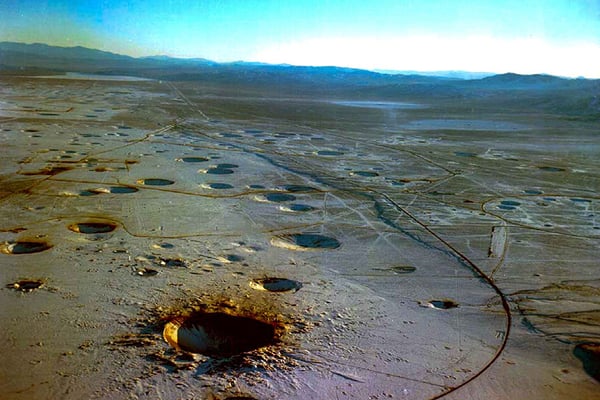
New Mexico
New Mexico has 18 facilities covered by the EEOICPA White Card program including the Los Alamos National Laboratory. New Mexico is also a designated Uranium Worker State meaning certain uranium industry employment is covered under the Radiation Exposure Compensation Act (RECA) throughout the entire state. Uranium mining played a large role from the early 1950s to the early 1980s.
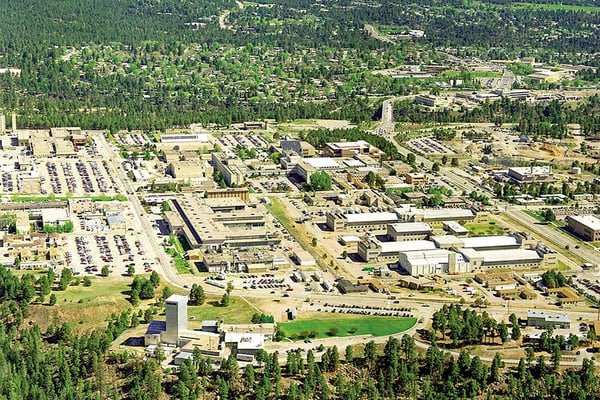
South Carolina
South Carolina has 1 facility covered by the EEOICPA White Card program which is the Savannah River Site (SRS). This site performed multiple operations that played a vital role in the nuclear weapons complex including the production of plutonium and tritium. Many facilities were built at SRS to support these efforts and to address the resulting environmental impacts.
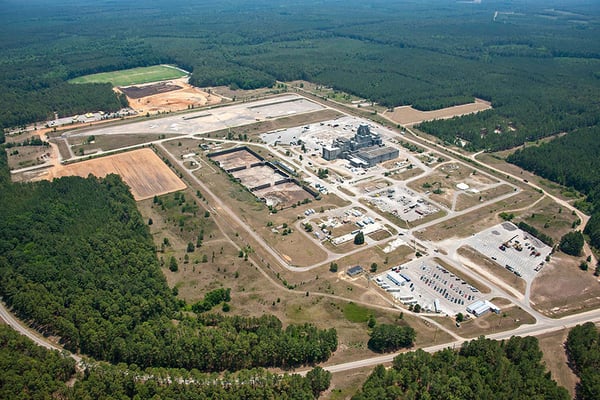
Georgia
Georgia does not technically have any EEOICPA facilities, but we serve this state due to the proximity of the Savannah River Site (SRS) located in Aiken, SC. This site performed operations that played a vital role in the nuclear weapons complex including the production of plutonium and tritium. Many facilities were built at SRS to support these efforts and to address the resulting environmental impacts.

Tennessee
Tennessee has 12 facilities covered by the EEOICPA White Card program including the Oak Ridge National Laboratory (X-10) which holds historical importance as one of the three original sites in the Manhattan Project. In order to advance the project, the Oak Ridge Gaseous Diffusion Plant (K-25) and Y-12 Plant were constructed to investigate various techniques for enriching uranium.
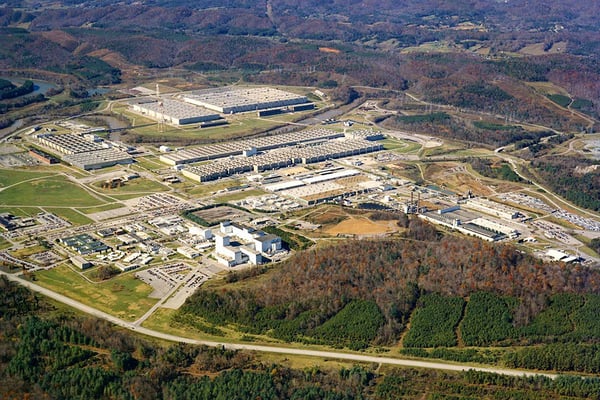
Texas
Texas has 6 facilities covered by the EEOICPA White Card program including Pantex which is the primary nuclear weapons assembly and disassembly facility originally built as a conventional bomb plant. Texas is also a designated Uranium Worker State meaning certain uranium industry employment is covered under the Radiation Exposure Compensation Act (RECA) throughout the entire state.
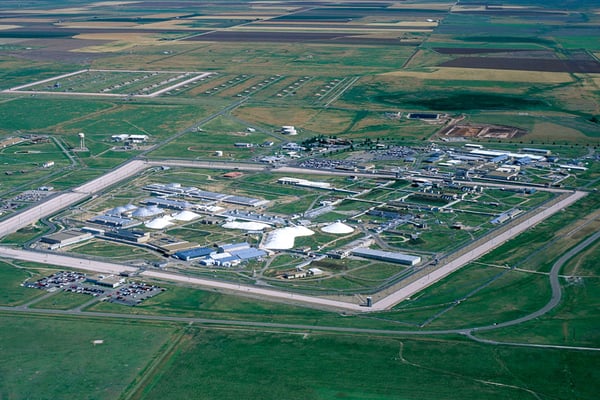
Subscribe to Trusted Ally news
Receive updates on the EEOICPA White Card Program and Radiation Exposure Compensation Act (RECA) by signing up here.
What clients, family members and employees say












